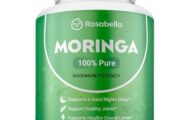FDA releases allergen, food safety, and plant based labeling guidelines to help industry understand and comply with regulations. The food safety guidelines cover low moisture ready to eat foods.

Food Allergens
This guidance covers food allergens, including questions and answers about food allergen labeling requirements, the labeling of tree nuts, sesame, milk, eggs, incidental additives, highly refined oils, dietary supplement products, and certain specific packing and labeling situations, such as individual units within a multiunit package.
The FD&C Act requires that any food that is made from two or more ingredients must declare each ingredient by its common or usual name. But consumers may not be familiar with those names, and may not recognize that the ingredients contain a food allergen. So the Food Allergen Labeling and Consumer Protection Act of 2004 defined the term and required that the presence of an allergen be listed on the label.
For food allergens that are not one of the nine major allergens are also addressed. Consumers can petition the FDA asking that those ingredients be added to the list of major allergens. This guidance describes the approach the FDA will take when evaluating the importance of a non-listed food allergen.
Low Moisture Ready to Eat Foods
The draft guidance for sanitation programs for low moisture, ready to eat foods covers products such as powdered infant formula. There have been issues in the past about these products being contaminated with pathogens such as cronobacter. Manufacturers have claimed that they cannot guarantee powdered infant formula is free of pathogens.
The guidance is intended to establish sanitation programs and help corporations take corrective action after a contamination event. Other foods covered by this guidance include peanut butter, nut butters, powdered drink mixes, chocolate, medical foods in powdered and paste forms, processed tree nuts, milk powders, powdered spices, snack foods such as chips and crackers, granola bars, and dry cereal.
The guidance covers establishing and implementing a sanitation program, conducting root cause investigations, taking steps to identify affected foods, and the limitations of relying only on a product testing program as verification that the product is safe.
Plant Based Alternatives
This guidance provides best practices for naming and labeling plant based alternative to eggs, seafood, meat, poultry, and dairy, excluding plant based milk alternatives. This guidance is intended to help consumers understand the differences among these products to make informed choices.
The guidance ensures that manufacturers make sure that the labeling for these products is truthful and non-misleading, and accurately describes the food.



